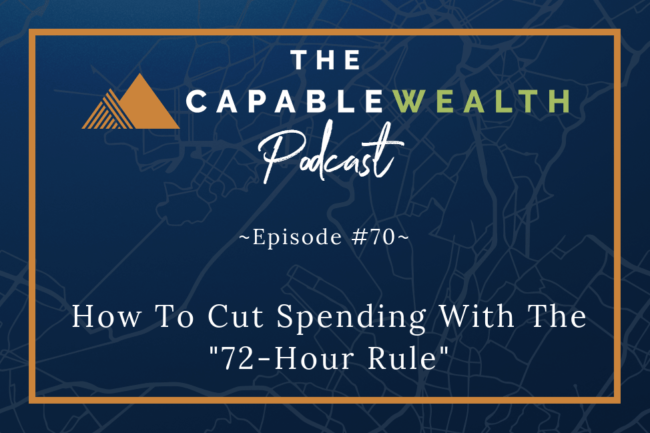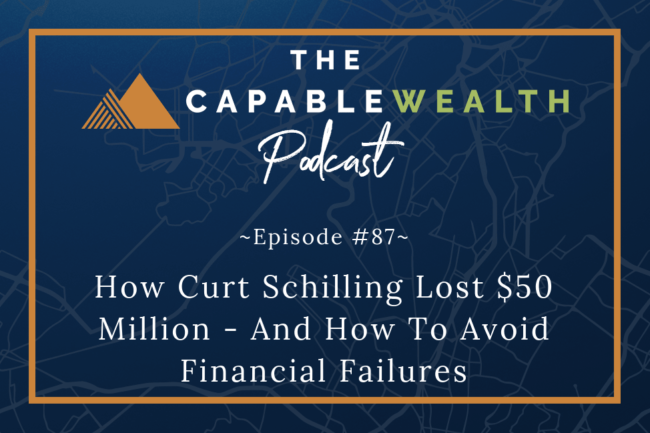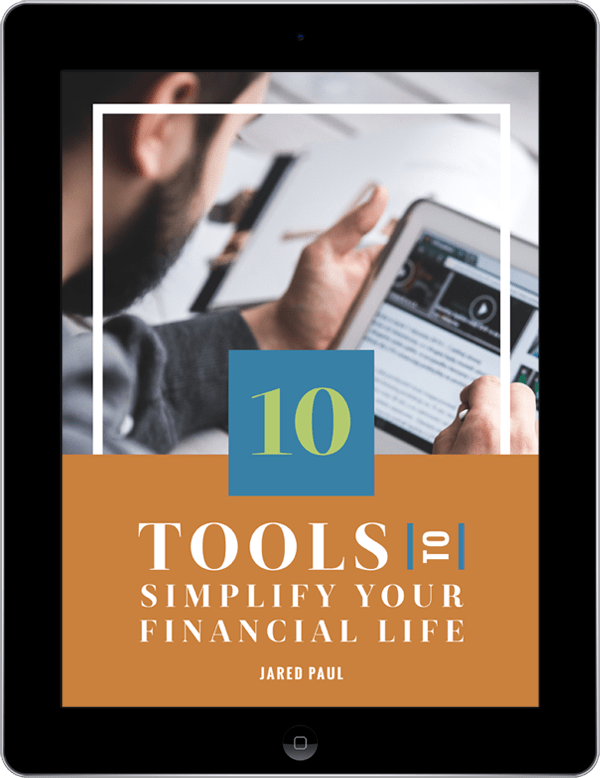Not too long ago I was out at a bar with friends. Mixed between the 80’s rock music and the clinking glasses, there were numerous conversations going on at our table.
When it got to that first climactic moment in the night – when everyone has to order – the waitress began asking us, one-by-one, what we wanted.
When it got to me, I told her that I was fine with my beer, and was probably not going to order food. She nodded and quickly transitioned to the next person in our group.
Once she left, one of my friends turned to me and asked, “Are you doing ok? You’re not having financial issues, are you?”
I laughed at her and assured her that I was doing just fine. I had eaten only a couple hours earlier and wasn’t very hungry. If things changed, I’d be sure to put in an order.
Later, as I made my way home, that moment flashed back into my mind and forced me to think about it more.
WHY PEOPLE THINK SPENDING MONEY EQUALS FINANCIAL STRENGTH
It was interesting to me that the first thought was if someone wasn’t ordering food they must be having financial issues.
It made me start thinking about the psychology of money, how we use it to show status, and how people define themselves by their net worth.
[Why I Hate The Term Net Worth]
It’s difficult for most people to not equate a person’s status to the amount of money they have. We are bombarded by images of people in luxury homes, fancy cars, and private yachts – all pointing to one thing – the more money you are able to spend = the more money you have = the better you are doing.
So many of us get sucked into this mindset and end up over-extending ourselves in order to feel better about our situations – whether it’s true or not.
It’s the long-standing battle with trying to “keep up with the Joneses”, and it’s costing us!
CHANGING YOUR MINDSET IN ORDER TO BUILD WEALTH
Whenever I’m asked about building wealth, I know what people are asking for – they want me to tell them about some investment, or some particular tactic that’s going to net them a big profit and grow their bank account.
Unfortunately, building wealth is about more than the tactics. It’s a lifestyle and mindset.
This is why it’s so important to challenge thought-processes and preconceived notions like the one my friend was imposing on me.
Believe me, her asking if I was doing ok was a sincere gesture. But the mentality that lead to it is the problem. Not just for her, but all of the people who are asked questions like this.
I’m quite confident in myself, as well as the way I’m spending my money. But how many people would be affected by a question like that? Maybe they’d feel awkward being the only one not ordering an entrée.
My decision not to order food wasn’t financially driven. I wasn’t hungry. But what if it was financially driven? Whether it’s because money is tight, or you’re just looking to keep your money in your wallet – there shouldn’t be an issue with that.
LEARNING FROM THE WEALTHY
An often-quoted personal finance book, The Millionaire Next Door, depicts the traits of those who have been able to build wealth.
The book was written after studying a large sample of millionaires in the U.S. in hopes of understanding what got them to where they were.
It turns out, most millionaires live a frugal lifestyle, defined by low-priced beers, inexpensive cars, and homes well within their budgets.
The neighbors you see driving luxury cars aren’t the ones most likely to have real wealth in the bank.
ASPRIING TO FRUGALITY
So, does this mean that in order to build wealth you have to focus all of your effort on cutting down your expenses?
It’s one way to help, but I don’t know if it should be your sole focus.
Many people recommend you cut out all unnecessary spending. Names like Suze Orman have made headlines for saying things like “buying coffee is like pissing away $1 million dollars.”
There is one problem with this mindset – there is only so much you can cut out of your budget.
In reality, you could avoid going out, never spend time with friends, and never engage in any activities that cost money. This would help you cut your expenses as much as possible.
But what kind of life would that be?
I’ve written in the past about how you should be focusing on getting your biggest spending decisions right so you don’t have to worry about the small stuff, and how you can have a much bigger impact on your wealth by growing your income.
But what it really boils down to is spending on the things you truly care about, and cutting out the things you don’t.
LIVING YOUR RICH LIFE
There is a growing trend in the personal finance community around a concept called “living your rich life”.
In essence, it is all about aligning your spending with the things you truly care about. Spending freely on the things you love to do, and cutting as much as possible from the things you don’t.
Which brings me back to my original story…
We should all attempt to live our rich lives. And each person should feel comfortable about defining that for themselves.
If this means always opting for the lower-cost option when eating out, that’s great. And if it means sparing no expense on your culinary adventures, just as great.
But make sure you aren’t projecting your feelings about money and spending on others. You never know when you might be pushing someone to buy and unwanted entrée.
Capably Yours,
Jared















